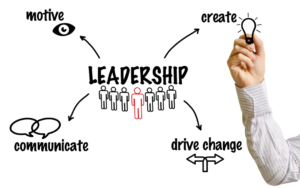Social isolation can lead to major psychological stress[1].
But have you ever wondered why some people could easily network their ways up the ladder of life, while the rest of us remain trapped in our tiny social eco chambers?
Many of us think that social networking is easy. And that’s why we try to do it so often. We connect with the familiar colleagues at work. We connect with similar people in our various communities. And when we attend a social function, we connect easily with new acquaintances who are similar to us in some ways. It’s easy. And, according to the Harvard Business Review, that’s how we build our tiny social echo chambers[2].
Social echo chambers are rarely useful to those who aspire towards upward mobility in life or career. Such people would, sooner or later, start feeling totally discontented with the status quo. And the feeling may persist even when it appears like they are well connected socially. They often sense an inner craving for change – a burning desire for advancement. Some of them may even feel like they’re trapped and are being held back by some kind of force. But, more often than not, the real problem is that their approach to social networking was ineffective.
How to Network Your Way Up The Ladder of Life
It’s easy to connect with people who are familiar or similar to you. But, unless you are already one of the top 20%[3], you will rarely move up the social ladder without connecting with people who seem to be way outside your league. You may call it the upstream networking. Many aspiring up-comers tend to approach this kind of networking wrongly, only to get frustrated in the long run. And most don’t even bother to do anything at all because the process usually appears terrifying, an uphill task. It’s way easier to cling to a small social echo chamber.
But you’re probably one of the few who are no longer contented with their small social echo chambers. For successful people like you, there’s always a way forward. Perhaps, you are already upset with the status quo. And you feel strongly that there’s more out there for you to explore. Here’s what you could do to become a better networker:
1. Understand the Three Levels of Social Interactions
In order to navigate the tides of upstream social networking effectively, you need to be aware of the following levels of social interactions. (Note: these terms should not be confused with similar terms used in romantic relationships[4]).
A) Dependent level
Someone at this level would easily come across as unproven and a potential liability. This is usually because the person is either unskilled or grossly less productive. It’s almost impossible to build an effective upstream social network on this level of social interaction
B) Independent level
The person at this level is basically self-sufficient. He or she has mastered their intuition and conquered their fears. They are not only skilled and very productive, but they have also developed their individual identities and are upwardly mobile in their respective fields. They are now ready and fit for effective upstream social networking.
C) Interdependent level.
This is where two or more independent people come together to build amazing synergies. Each party is bringing something worthwhile to the table. Everyone can do without each other, but together they can do so much more. This is what an effective upstream social networking is all about.
2. Use Intentional Isolation to Hack Your Way into Independence
Do you feel like your social interactions are largely on a dependency level? Then, don’t try to build your upstream social network from the perspective of need and dependency. You may be disappointed. You cannot form an effective interdependent social connection without being independent first. This is why many aspiring up-comers lose out woefully when they presume that upstream social networking is about showing up at the right places and shaking hands with the right people. It does not work that way. Here’s the reality: people will only take you seriously when you have something worthwhile to bring to the table.
So, instead of looking for help outside, you should consider connecting to your inner-self, harnessing your inner resources and using your inner strength to attain personal independence once and for all? You can do this. And there’s no better way to start building a collection of highly rewarding interdependent social connections. But it all begins with an intentional isolation, not a reactionary one.
Intentional Isolation versus Reactionary Isolation
People tend to slide into a reactionary social isolation when their small social echo chambers feel so out of touch, and their attempt to build an upstream network seems so elusive. While in reactionary social isolation, they often succumb to self-pity, social vices and hopelessness. But none of these should be part of your intentional isolation.
On the contrary, you should be very confident that you have all it takes to attain personal independence. Thus, your aim is to conserve your time and energy through intentional isolation. You do this in order to reflect deeper and work hard on personal transformation and new skills acquisition. Once you successfully break into the realm of personal independence, you will encounter many opportunities. And with some of these opportunities you can build an association of powerful and upwardly mobile social networks.
3. Build Effective Interdependent Social Networks – Don’t Ever Settle for Less
You will experience many powerful transformations as you move successfully from dependency to independence. But one thing that would stand out noticeably is your increased productivity. Usually, higher productivity is a sign of improved skills and engagements. What this means is you are already in touch with some new contacts who are effectively rewarding your productivity and your social engagements. Such contacts could be your link to moving higher up and building a pride of strong and very strategic interdependent social networks.
Trust your intuition.
Embrace humility.
And keep networking upstream.

